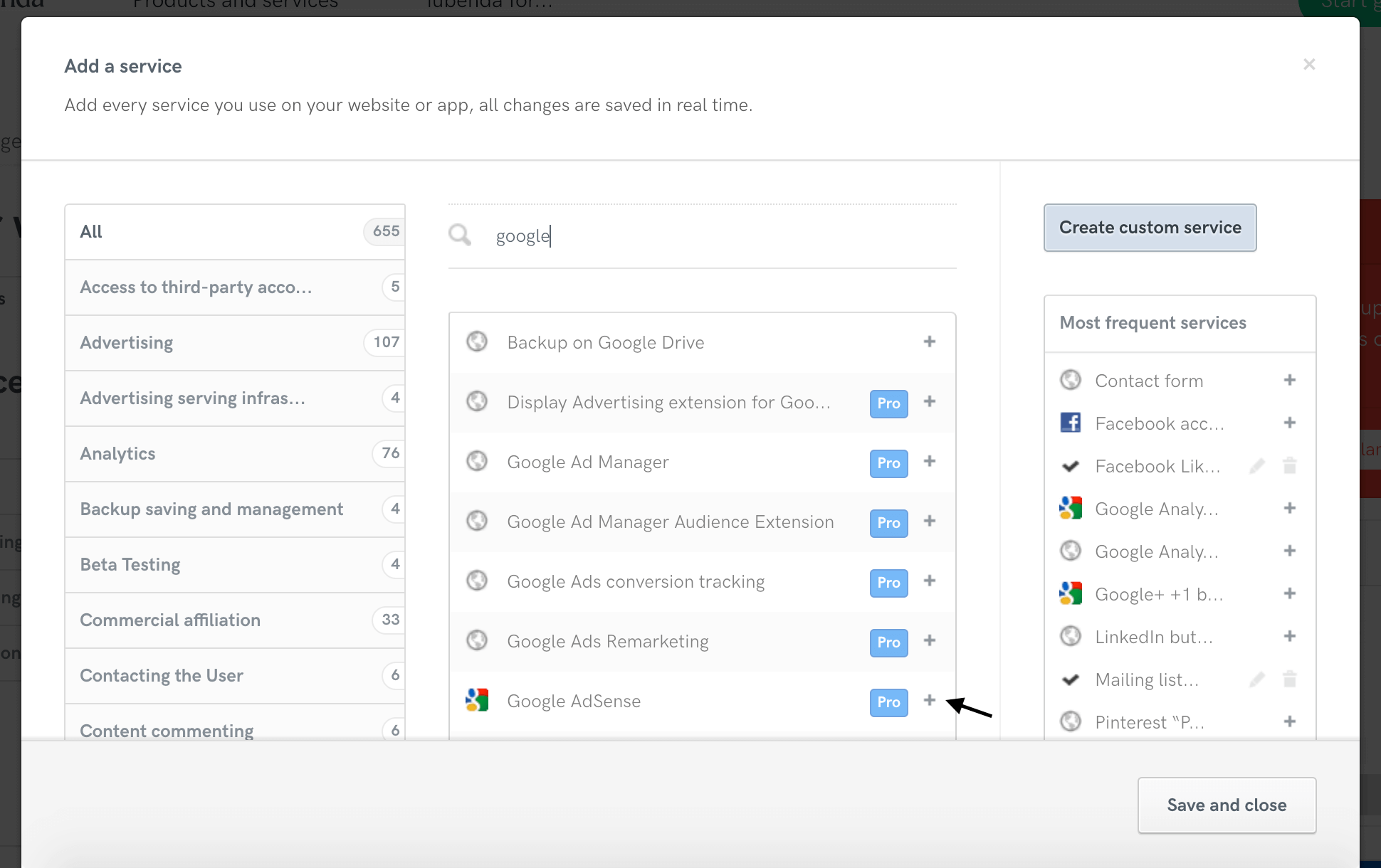Google AdSense may utilize user data for advertising communication purposes by tracking user interactions with your content and with ads. This is why, in accordance with most countries’ privacy laws, Google requires you to have a privacy policy if you use Google products like Google AdSense and a cookie management solution where applicable (especially if running personalized ads).
As a matter of fact, when you sign up for Google AdSense, you consent to their terms and conditions which states under section “10. Privacy”:
Our privacy policy explains how we treat your personal data and protect your privacy when you use our Services. By using our Services, you agree that Google can use such data in accordance with our privacy policy. You and Google also agree to the Google Ads Controller-Controller Data Protection Terms.
You will ensure that at all times you use the Services, the Properties have a clearly labeled and easily accessible privacy policy that provides end users with clear and comprehensive information about cookies, device-specific information, location information and other information stored on, accessed on, or collected from end users’ devices in connection with the Services, including, as applicable, information about end users’ options for cookie management. You will use commercially reasonable efforts to ensure that an end user gives consent to the storing and accessing of cookies, device-specific information, location information, or other information on the end user’s device in connection with the Services where such consent is required by law.
This means that – aside from likely breaking the law – not having a privacy policy would also put you in violation of the Terms you agreed to with Google.
Generally, the national/regional laws of your base of operations will apply, as well as (in many cases), the laws governing the regions in which your users are based. This can be quite tricky online, as, unless you’re actively blocking some regions, you may need to address requirements across geographical boundaries and legal jurisdictions. For this reason, it’s always the best idea to handle these activities with the strictest applicable regulations in mind (which currently, is likely European Law, mainly the GDPR and Cookie Law).
You can read more about determining your law of reference here or read our in-depth Legal Overview Guide here.
A lot of people ask for sample privacy policies for their sites/apps and Google AdSense. The exact required contents of a privacy policy depend upon the law applicable to you and your particular processing activities.
It’s therefore advisable, as referenced above, that approach your (legally mandated) privacy policy with the strictest applicable regulations in mind.
Let’s start with the legal minimum requirements. These are the most basic elements that a privacy policy should have:
Remember the above example text is given outside of the specific context of your site, therefore, this will not yet be an effective privacy policy on its own as legal documents are invalid if they’re not written properly.
Here’s where our Privacy and Cookie Policy Generator comes in very handy: with 1700+ available clauses, our privacy policies contain all elements commonly required across many regions and services, while applying the strictest standards by default – giving you the option to fully customize as needed.
Our policies are created by lawyers, monitored by our lawyers and hosted on our servers to ensure that they are always up-to-date with the latest legal changes and third-party requirements.
The process is straightforward and intuitive:

Note: The AdSense clause is a PRO service that you can easily access with a premium account. The Google Analytics clause falls under our free limits.
As mentioned above, there are two sets of specifications to be met — those of Google and those of the Cookie Law. Luckily, these two intersect and requirements for both are easily met by our comprehensive Cookie Solution.
Our Cookie Solution allows you to:
You can collect consent via multiple mechanisms including continued browsing, scrolling, and/ or specific clicking actions. Keep in mind though that allowed consenting actions may differ depending on the Member State law.
The process is straightforward:
After creating your account simply go to your website area:
It’s easy to run, fast and does not require heavy investments. For more information on our Cookie Solution click here.
Please note: if you run personalized ads using Google services like AdSense and Google Publisher Tag, you’re required to ensure that explicit consent to ad personalization is collected before displaying personalized ads for end-users based in the EAA. Where this requirement is not met, Google will default to serving your EEA end-users with non-personalized ads, potentially impacting your ad revenue. Find full details in the dedicated guide here.